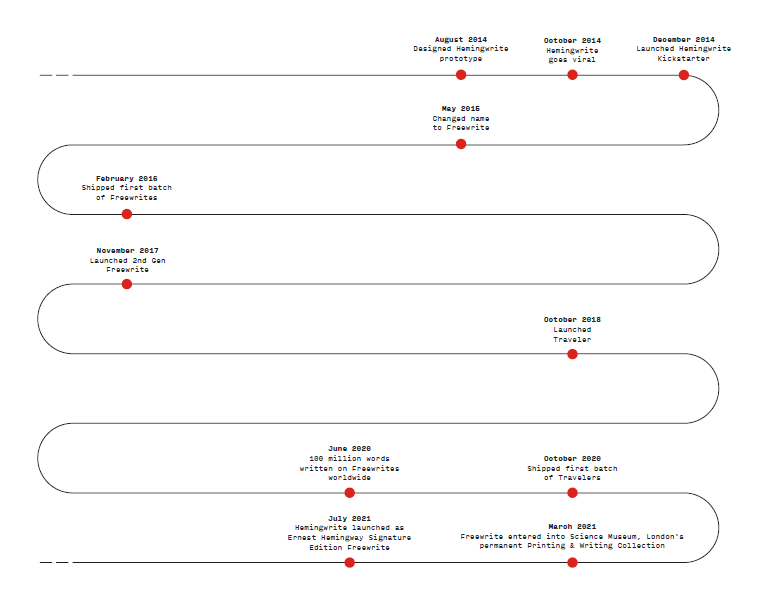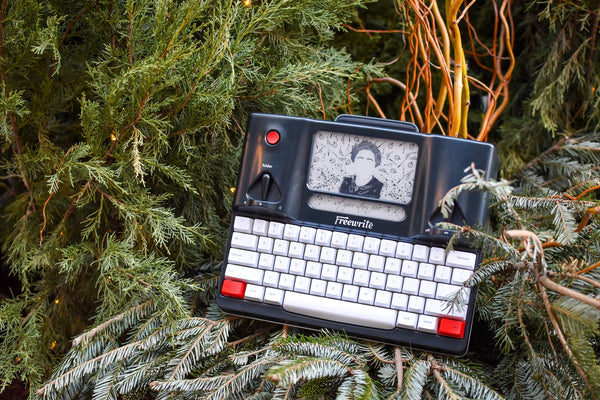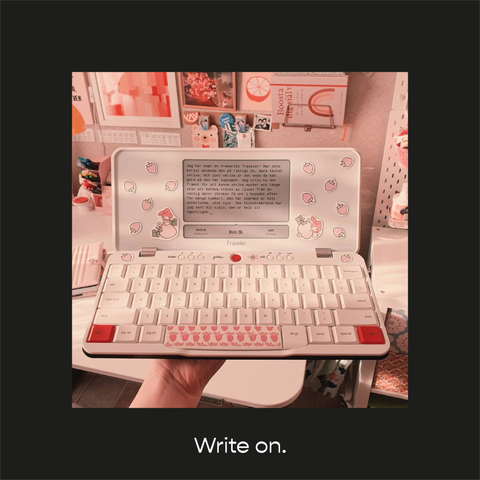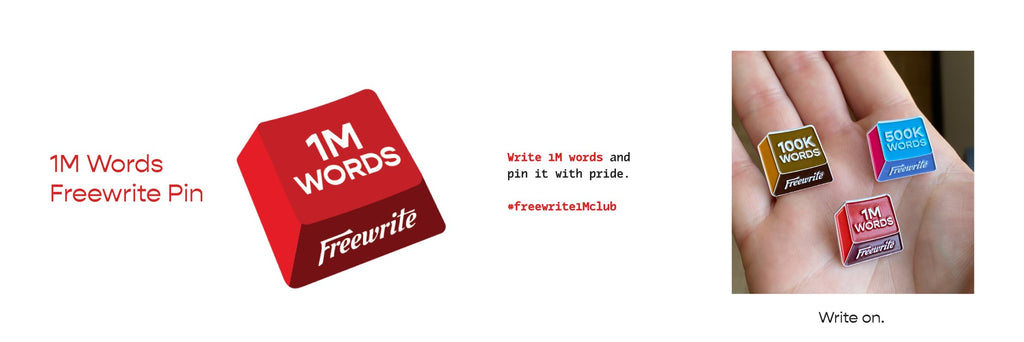“Do not wait until the conditions are perfect to begin. Beginning makes the conditions perfect.” - Alan Cohen
...
Writing is a marathon, not a sprint.
Whether you were able to write yesterday or the day before that, each day you live through helps you mature as a writer. Each morning is a chance to start fresh and apply new observations and experiences to your craft. Each time you sit down to write, you’re one session closer toward achieving your goals.
The Freewrite Team is right there with you—constantly listening, learning, and improving how we do things. Ever since we launched the "Hemingwrite" distraction-free writing concept in 2014, we've been on the best adventure we could’ve dreamed of.
After examining how far we’ve come, we decided it was time to reflect our learnings in a rebranding project.

Why is Freewrite rebranding?
We created the Freewrite brand of distraction-free writing tools under the company Astrohaus, which was originally intended as a design incubator.
The Freewrite line began with the Freewrite Smart Typewriter (née Hemingwrite,) then launched Freewrite Traveler in 2018. Traveler’s launch thus pushed the Freewrite moniker from a single product to that of a brand.

We also wanted to engage more with our Freewrite Family. To better serve you all, we needed to clearly define our products, mission, and image to appropriately reflect our vision.
The Freewrite product family
First under the Freewrite brand is the Freewrite Smart Typewriter.
A distraction-free device for the modern author, the Freewrite is the ultimate drafting tool for serious writers. The Freewrite’s elegant aluminum body, frontlit E Ink screen, and crisp-sounding keys make it the statement piece in any writer’s abode.

Second is Freewrite Traveler.
The latest addition to the Freewrite line, the Traveler is the ultimate, portable, distraction-free writing tool. The Freewrite Team built upon the distraction-free concept created by the original Freewrite and re-packaged it into an ultra-compact, polycarbonate body.

We look forward to releasing new additions to Freewrite line of productivity devices.
Freewrite’s mission statement & values
Freewrite's mission: Equipping writers with the tools to be prolific.
We have six key values that center around supporting writers. Freewrite strives to:
- Elevate art
- Blend design and engineering
- Push people to be their best
- Remove people’s internal barriers
- Motivate and inspire
- Provide a creative outlet
Freewrite’s tagline
We created a tagline to emphasize our goal of encouraging writers: Write on.
“Write on” has three layers:
- The literal definition – we encourage writers to push forward and write more.
- “Right on” – a play on words that aligns with our warm and positive tone of voice.
- Write “on” – indicating that we help writers get into writing flow, i.e. switching on a writing mode.
Freewrite’s design
The Freewrite brand lives under Astrohaus, which was inspired by retro-futuristic elements. (“Astro” came from the founders’ interest in space and “haus” from their admiration of Bauhaus design.)
Freewrite retains its retro-futuristic roots and still incorporates minimalism, though to a lesser extent than Astrohaus. Freewrite particularly seeks to visually represent the concept of “writing flow,” so we took care to select the font pairing of Gopher/Input Mono.
Gopher represents the modern and sophisticated side of Freewrite. Input Mono, our inspiration by the past to speak to the future.
Want to see our rebranding in action?
If you’re on our newsletter (sign up to receive the latest product launch announcements, sales, and news!) or follow our social media, you may have already seen some newly rebranded designs.
Our designs incorporate our characteristic red, black, and white colors and a sincere photographic style. (Many of the photos are user-submitted—we love to highlight our Freewrite Family!)
So far, we’ve introduced some cleanly framed product posts and can’t wait to represent the idea of writing flow in new, creative post styles.
We’re working to redesign all our communication, and we hope you love watching our rebranding progress in real time.
Stay tuned, and thanks as always for showing so much love to Freewrite over all these years. Your heartwarming photos, messages, and reviews are what keep the team going.
-























